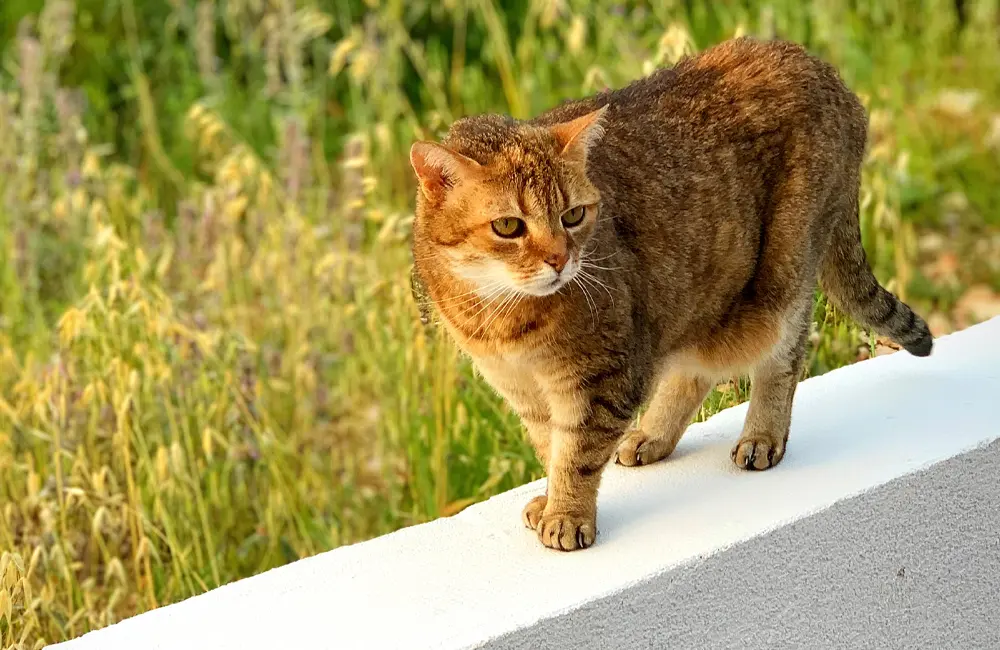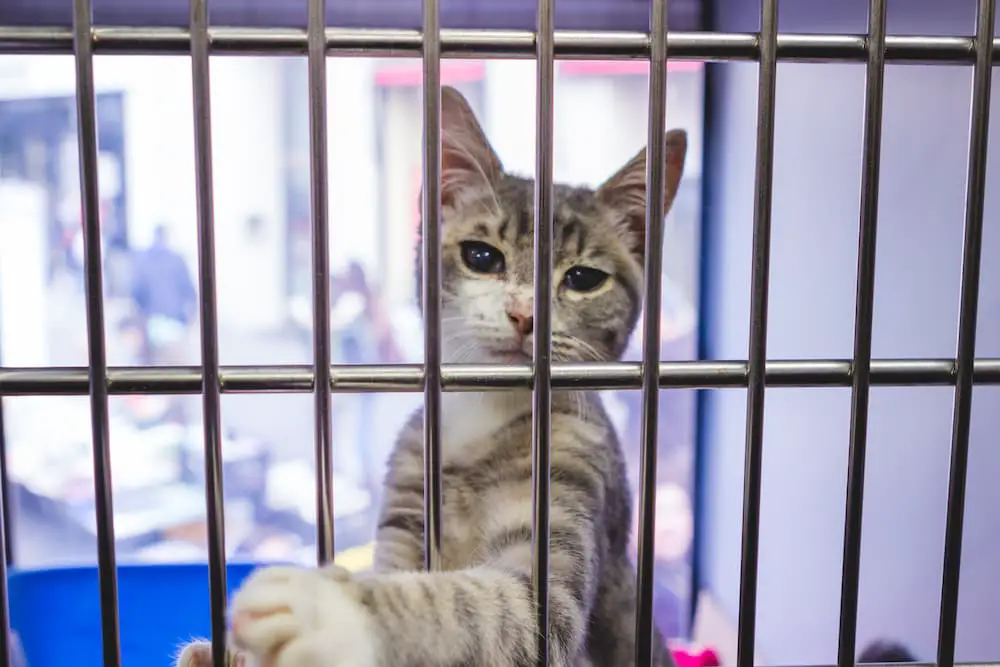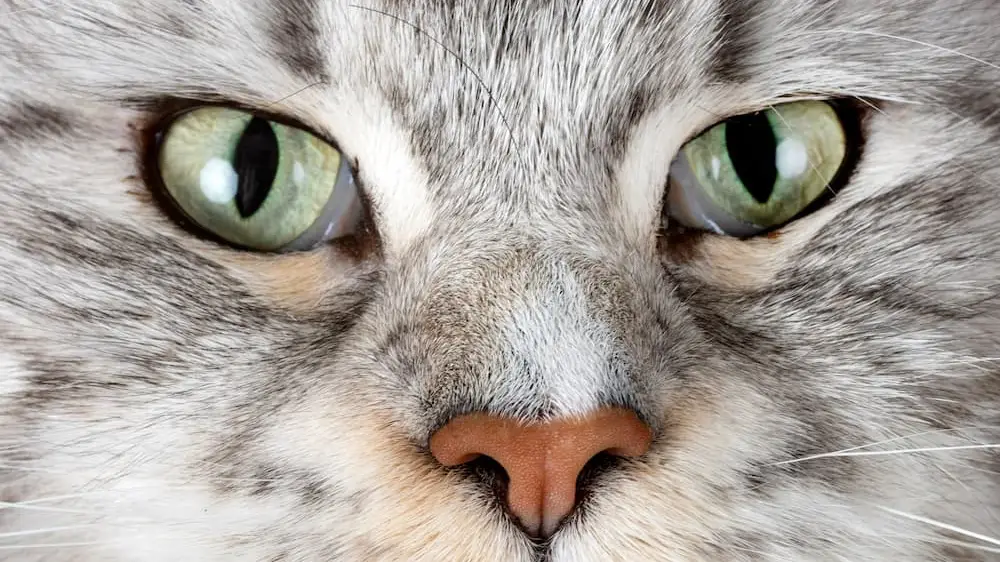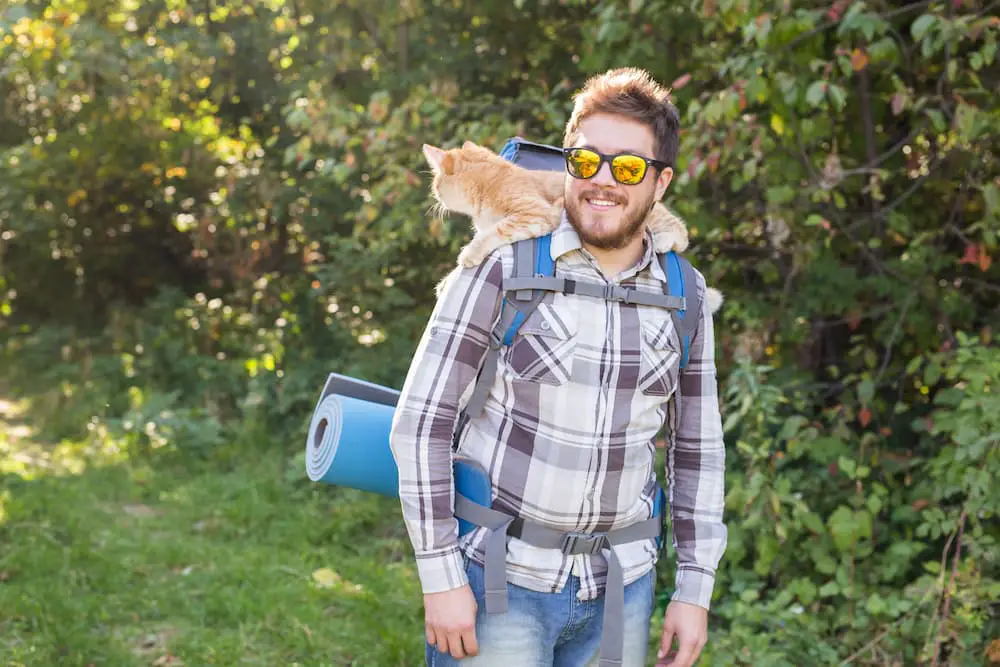With the Omicron variant of COVID-19 spreading rapidly around the country, a lot of cat parents are wondering if they should be concerned about spreading the virus to their feline friends, or vice-versa. Read on to find out if your cat can catch Omicron.

In the early days of the pandemic, we were told by the World Health Organization that cats could not catch or spread the coronavirus. However, as with everything else with this novel virus, the data quickly changed. Soon, we learned that we could infect our cats, but it was very rare, the cats’ symptoms were typically mild, and there was no chance of them infecting us.
We got to wondering – has the science changed with the new Omicron variant? Here’s what we know.
Yes, animals can catch COVID-19
It has been proven, companion animals like cats and dogs can get COVID-19. However, the infection remains extremely rare. When you consider how many millions of people have been infected with the virus, there have only been 115 cats confirmed with Covid infections around the world.
The USDA has been tracking all animal infections in the United States, and according to the chart below, they’ve confirmed only 110 cat infections in the entire country. Next, dogs and then a myriad of zoo animals – all in the care of humans, indicating that’s where they acquired the infection.
However, since our pets aren’t routinely tested for it, this is probably a lower number than actual. That said, the extremely low count still implies that our cats are not very susceptible to the disease.

Signs and symptoms of COVID-19 in cats
Fortunately, if a cat does happen to become infected with the coronavirus, most cases are mild or even asymptomatic. If they do have symptoms, the disease will present itself the same way it does in people — as an upper respiratory infection with some possible gastrointestinal symptoms, too.
The most common symptoms of Covid in cats include:
- Coughing
- Sneezing
- Fever (Higher than 102.5)
- Lethargy
- Runny nose
- Discharge from eyes
- Vomiting and diarrhea
Research showed that feline COVID-19 infections peaked at around day 4. So, cats have a milder infection and they tend to clear it faster than we do, too.
Can cats transmit COVID-19?
There is evidence that cats can spread the infection to other cats if you have a multi-cat household. interestingly, though, the other cats that catch it usually end up with asymptomatic infections.
There is no data to suggest that cats can transmit COVID-19 (either Omicron or any other variant) to dogs. They might be able to give the infection to ferrets or hamsters.
Currently, there are no records of a cat giving a COVID-19 infection to a human. This is probably because cats only shed the virus for a very short time and they develop an extremely strong immunity to it.

What to do if you think your cat has Omicron
If your cat is showing signs of COVID-19, and has been exposed to a person with an infection, the first thing you should do is contact your veterinarian. Many of them can offer a telemedicine consultation as long as your cat is already an established patient.
Most vet’s offices aren’t testing their patients for Covid infections. Rather, they will advise you on supportive care. Also, no – while we used them in our photos because they were cute – your cat will not need to wear a face mask!
Note: You can’t use an antigen test for humans to test your cat for COVID-19. Your vet will need a special test for animals in order to test for the infection.
How to keep from giving Omicron to your cat if you’re infected
If you become sick with COVID-19 and want to protect your cat from catching it from you, here are some effective things you can do:
- Wear an N95 mask around your cat
- Wash your hands with soap and water before touching your cat
- Social distancing – isolate yourself from your cat while you’re sick
Final thoughts
There’s no evidence that you can get Omicron from your cat — but you can give it to them.
To avoid giving your cat COVID-19, the best thing to do is isolate yourself from your kitty. If that’s not possible, wear a mask around them and be vigilant about washing your hands before you touch them. But remember, the chance of your cat catching it is extremely rare and even if they do get it, the infection is usually mild and short-lived.
If you think your cat has been infected with COVID-19, the best thing to do is call your veterinarian.
Share this info with other cat parents…Pin it!








